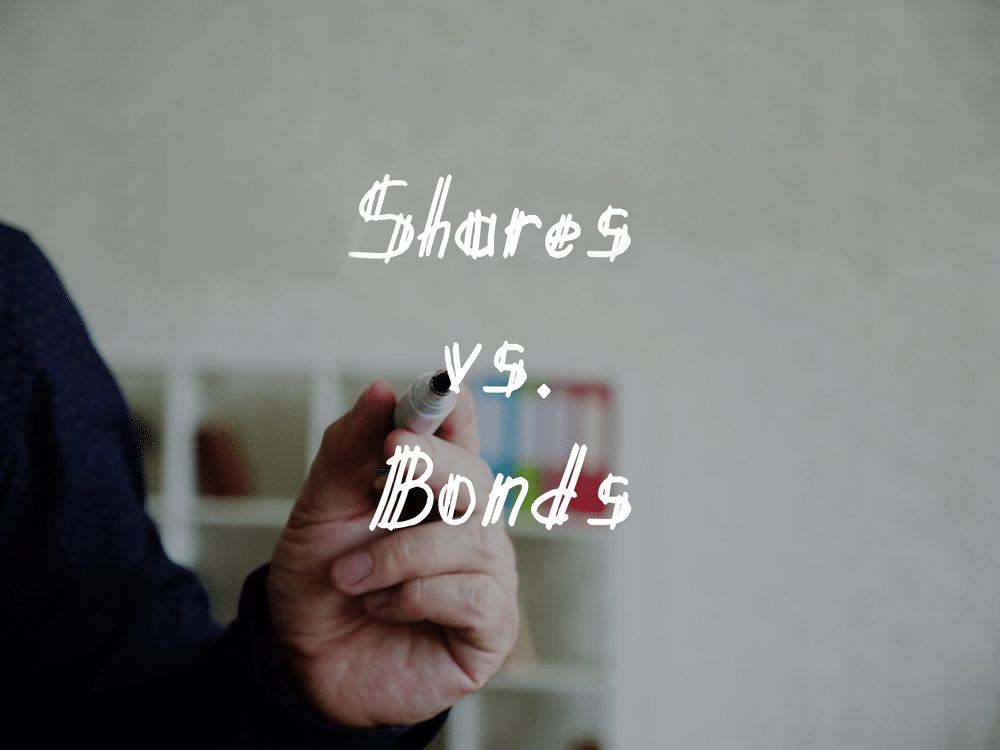
When a public company needs additional means to expand, it will typically find itself facing the choice of two popular options – issuing bonds or shares. The latter are more popular among corporations, as well as bold investors seeking high profit and willing to take on high risks. Let us see why.
Shares
Owning the shares of a company means that technically you own a fraction of the company. With that in mind, the company’s gains and losses directly affect your financial position. If the company is profitable, the value of your shares increases.
Conversely, if it makes losses, investor interest in the company reduces, and so does the value of your shares. Therefore, owning company shares gives you equity in the company, and this may work in your favor or against you depending on how you approach the investment. There are two types of shares issued by corporations.
Bonds
Bonds are a means through which governments and companies raise capital for their various projects. When you buy a bond, it means that you lend the issuer some money. A bond is technically a contract between you and the issuer, stating the amount of money you are lending, the interest the money will yield, and the frequency of payment.
At the end of the contract period, the lender gets back their principal amount. Bonds also have a degree of risk exposure in that you can lose your investment in case the issuing company or government faces financial constraints and is unable to meet its debt obligations.
Shares and bonds compared
Equity and debt markets
As mentioned above, shares give you equity in a company. This means that you have good liquidity when you own shares because you can easily sell them. On the other hand, a bond is a debt contract. The effect of owning bonds is that you stand to benefit from “assured” interest payments, but unlike shares, you don’t own any part of the company.
The risk with equity is that the market can go against you for a prolonged period, and you may be forced to sell the shares at a loss for fear of further depreciation if the company consistently reports losses.
On the other hand, if you buy bonds from a company with a good credit rating, you will almost certainly get paid interest and the principal amount as agreed. However, the risk of default on bond payments is higher if you buy bonds from institutions with poor credit ratings.
Profit generation
Investors make profits from stock only if the share price appreciates afterward and they sell the shares at a higher price than the selling price. But, it doesn’t end at that. The profit you make from the sale will be subjected to capital gains tax deduction. With bonds, there are two ways you can profit. Firstly, you can wait for the issuer to pay you interest as agreed.
The interest is the profit you get before the payment of the principal amount at the expiration of the contract. The second way to earn from bonds is by selling them at the bond market. If you choose the second option and sell at a profit, you will be liable to pay a capital gains tax. This option makes bond trading similar in many ways to trading stocks.
Inverse performance
Because of the different benefit and risk levels that come with owning equity and issuing debt, shares, and bonds typically perform inversely. A rise in the performance of the stock prices usually triggers a decline in the performance of the bond market.
Stocks are generally viewed as riskier in times of economic uncertainty. Therefore, when the stock market is on a decline, investors turn to bonds because they are viewed as being less risky.
Risk exposure
Stock ownership risk
While owning shares in a company effectively gives you a piece of the company, it also means that you are exposed to risk in case the company makes losses. A loss-making company usually experiences a decline in its share price. Sometimes it takes a long period for stocks to recover from loss-making positions, and this may put you at a disadvantage if you want to cash in when the share prices are down.
On the flip side, the stock market typically outperforms the bond market, making shares more profitable than bonds on average. However, there are wide variations in the performance of companies in the stock market, with some taking a long time to recover from losses.
Bond holding risks
Bonds are debts taken by governments and corporations. The risk level in bonds depends on the financial stability of the issuer. Companies and states are usually rated by different credit rating agencies. This tells potential investors how credit-worthy the issuer is.
Institutions with bad credit ratings generally offer high-interest rates on their bonds but have a high probability of default. Those with good credit ratings offer lower interest but are less likely to default on their payments. Therefore, investors should find a balance between risk and interest level when taking up bonds.
Which one should you pick?
As discussed above, bonds and shares reward differently and have different risks. Therefore, you should weigh these factors before deciding on one to pick. Ideally, your portfolio should have a mix of both assets. Remember the seesaw relationship between them and ensure that you adjust your portfolio’s composition accordingly from time to time.
Bottom line
Bonds and shares are both worthwhile investments. You should consider their various risks and rewards before going ahead with your investment. In addition, you should assess your risk tolerance and evaluate whether they align with your investment objectives.





